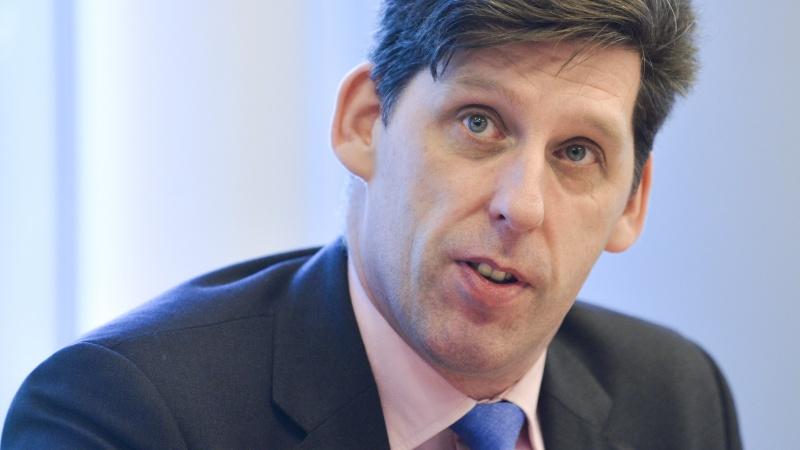Scotland could gain full fishing and farming powers post-Brexit, says MEP

Holyrood could gain powers over Scottish fishing and farming once the UK leaves the EU, Scotland's only Conservative MEP Ian Duncan has said.
The SNP administration is expected to call for more control in the week before Christmas and has already written to Scottish secretary David Mundell to urge a meeting to clarify what powers might be devolved further.
Mr Duncan MEP said: "I would argue those powers would be given to Scotland but I would hope there would be UK-wide standards. There are opportunities to streamline some of the rules and reduce some of the compliance costs.
"I think it will come to the Scottish Parliament and I think they need to be ready and realise the challenge."
Mr Duncan's words echoed what Mr Mundell said last month that a raft of further powers could be transferred as a result of Brexit. He said the devolution settlement could be affected to a 'similar extent' as that proposed by 'Calman and Smith.'
Mr Mundell told the Daily Express: "What I think hasn't been fully understood - is that by leaving the EU that will have a fundamental change on the devolved settlement here in Scotland."
He also told the BBC1's Sunday Politics Scotland that new agriculture powers could be granted.
"What I think hasn’t been fully understood and is only just beginning to be debated is that by leaving the EU, that will have a fundamental change on the devolved settlements here in Scotland, and indeed elsewhere in the UK, because these settlements were predicated on the basis that the UK was in the EU. Therefore there are a number of powers and responsibilities that are currently exercised by the EU which will have to return to the UK or Scotland."
Mr Duncan MEP backed the remain side in the EU referendum but said leaving would grant an opportunity to find a better environmental policy for Scotland and expected those powers to be given.
Fin Carson, the fishing and farming spokesman for the Conservatives, told the Courier: "We have to ensure the Scottish Government don't spend all their time talking about how bad Brexit is and about getting a special deal. We are going down the road, there is no turning back, and we have got to prepare for it."
'Significant amount of money'
In October, Prof Alan Page, an expert on public law at Dundee University, told a committee of MSPs that Scotland stood to gain significant levels of independence over farming and fisheries.
Prof Page said the UK would acquire the majority of the responsibilities following withdrawal but Scotland would gain responsibilities that were once a part of the Scottish Office including home affairs, agriculture, fisheries and environment.
He told the Centre of Constitutional Change: "The scale of the challenge facing the Scottish Parliament in terms of EU withdrawal is thus much smaller than that facing the UK Parliament, and does not include anything that will not be faced by the UK Parliament. As with much EU-related Scottish government activity this opens up the possibility of relying on the UK, a possibility the implications of which in terms of parliamentary oversight I come back to below."
Drew Scott, the professor of European Union Studies at the University of Edinburgh, told BBC's Scotland 2016 programme that it would have more immediate consequences for the constitution.
Prof Scott, who advised the Scottish government ahead of the independence referendum in 2014, said: "If the UK leaves the EU, then by default these powers will come back to the Scottish Parliament, not to the UK. That would create, in my view, a significant constitutional debate about how these powers should be exercised, how the policies should be paid for and how the relationship between the two governments will proceed".
He said half of the EU's budget currently goes on agriculture, "so you are talking about a significant amount of money".
"Agriculture has been reformed really since devolution and what we have seen is the Scottish Parliament has had more competence over the implementation of agricultural policy in Scotland, albeit it is still governed at EU level. If it were to be the case that Britain left the EU, competence for farming would come back to the Scottish Parliament, full stop. It would have to be financed, so a new financial deal would have to be agreed between Edinburgh and London to pay for farming, which of course is not at all included in the current Smith negotiations or anything preceding that."








